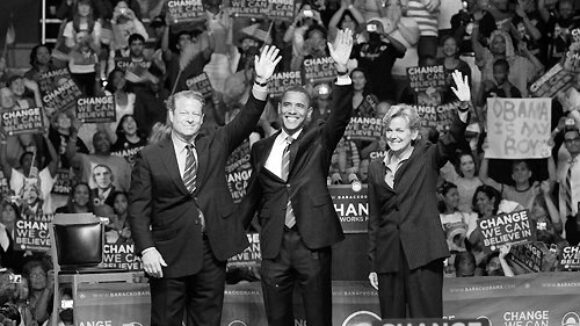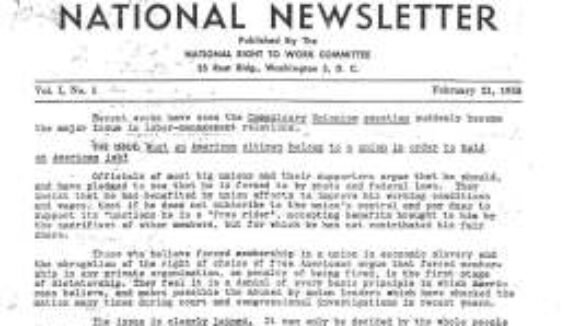Job Losses Increase Pressure For Reform
(Source: August 2010 NRTWC Newsletter) Grass-Roots Right to Work Efforts Expanding in Midwestern States Pro-forced unionism politicians like Gov. Jennifer Granholm (D-Mich., shown here with former Vice President Gore and President Obama) have lost credibility due to the extraordinarily poor economic performance of forced-unionism states. Credit: Radiospike.com All across America, Right to Work states have long benefited from economic growth far superior to that of states in which millions of employees are forced to join or pay dues or fees to a labor union just to keep their jobs. But over the past decade, the contrast between Right to Work states and forced-union-dues states has been especially stark in the Midwest. Four Midwestern forced-unionism states -- Michigan, Ohio, Illinois and Indiana -- suffered absolute private-sector job declines over the past decade that were worse than those of any of the other 46 states. Midwestern forced-unionism states (the four just mentioned, plus Missouri, Wisconsin and Minnesota) lost a net total of 1.88 million private-sector jobs. Combined, these seven forced-unionism states had 8.1% fewer private-sector jobs in 2009 than they did back in 1999. Meanwhile, the five Midwestern Right to Work states (North Dakota, Nebraska, South Dakota, Iowa and Kansas) experienced an overall private-sector job increase of 2.3%. Moreover, from 1999 to 2009, real personal income in Midwestern Right to Work states grew by 17.3% -- an increase two-and-a-half times as a great as the combined real personal income growth in Midwestern forced-unionism states. State Right to Work laws prohibit the firing of employees simply for exercising their right to refuse to join or bankroll an unwanted union. At this time, 22 states have Right to Work laws on the books. However, because of intensifying grass-roots efforts in many of the remaining 28 forced-unionism states, the number of Right to Work states could be on the rise over the course of the next few years. Recession's End Won't Suffice to Revive Big Labor-Controlled States

